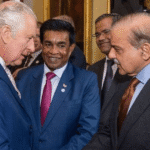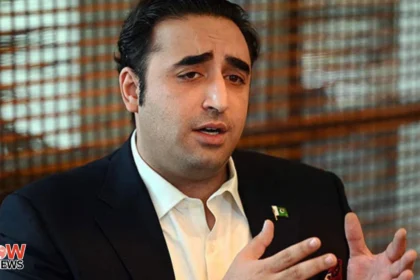In a politically charged environment, a petition has been filed in the Lahore High Court (LHC) seeking to prevent the Pakistan Tehreek-e-Insaf (PTI) from conducting a planned rally in Lahore. This application, filed by Mirza Waheed Rafiq, brings forth significant legal and political implications that merit a detailed examination. The petition names multiple parties, including the Deputy Commissioner of Lahore and PTI leadership, highlighting the intricate web of responsibilities involved in the organization of public gatherings.
Background of the Petition
The context of the petition is rooted in a series of escalating political tensions in Pakistan, particularly surrounding the activities of PTI. The party, led by former Prime Minister Imran Khan, has been known for its large-scale public gatherings, which serve as crucial platforms for rallying support and disseminating political messages. However, the atmosphere has become increasingly fraught, with allegations of inflammatory rhetoric and hateful speech emerging from recent PTI events.
Mirza Waheed Rafiq’s application to the Lahore High Court is a direct response to these concerns. The petition alleges that PTI has previously filed multiple applications regarding its rallies, which have raised alarms over public safety and the potential for unrest. The applicant specifically cites a speech made by Ali Amin Gandapur, Chief Minister of Khyber Pakhtunkhwa, as particularly concerning, alleging that it included hateful rhetoric that could incite violence.
Legal Grounds for the Petition
The legal basis of the petition rests on a few key arguments. First, it asserts that the recent speeches made by PTI leaders pose a significant risk to public order. By citing instances of hate speech, the petition argues that allowing PTI to proceed with its rally could exacerbate existing tensions and lead to public disorder.
In Pakistan, the right to assemble and express political views is constitutionally protected; however, this right is not absolute. Courts often weigh the potential for public disorder against the rights of political expression. The applicant’s request for the court to intervene reflects a growing concern about maintaining peace and security in Lahore, especially given the city’s history of political unrest.
Political Climate in Lahore
Lahore is not just the capital of Punjab; it is also a vital political hub in Pakistan, home to many significant political activities. Over the years, the city has witnessed numerous rallies and public demonstrations, particularly from PTI, which has leveraged these events to mobilize support. However, the political landscape has changed dramatically in recent times, with increased scrutiny on the language and behavior of political leaders.
Impact of Political Rhetoric
The petition highlights the increasing concerns about the nature of political discourse in Pakistan. In a society that is already divided along various lines—political, ethnic, and sectarian—the use of hateful or inflammatory language can have dangerous repercussions. Public speeches by political leaders often resonate deeply with their supporters and can incite strong emotions, sometimes leading to violence or public disorder.
The reference to Ali Amin Gandapur’s speech in the petition underscores the potential consequences of unchecked political rhetoric. Political leaders bear the responsibility of promoting dialogue and unity rather than division, especially in a country where tensions can escalate quickly.
Public Sentiment
Public sentiment surrounding PTI is polarized. While the party has a substantial base of support, especially among youth and urban voters, it also faces significant opposition. The reaction to the petition reflects this division. Supporters of PTI may view the legal action as an attempt to suppress their political voice, while opponents may see it as a necessary step to curb the excesses of political speech.
As Lahore continues to navigate its political landscape, the role of the judiciary in maintaining a balance between free expression and public order becomes increasingly important. The petition serves as a reflection of the broader societal concerns regarding the impact of political rhetoric and the responsibility of leaders to engage in constructive discourse.
The Role of the Lahore High Court
The Lahore High Court has a crucial role in addressing matters that affect public order, especially in a politically charged environment. By considering this petition, the court will not only be adjudicating the specific case at hand but also setting important precedents for future political gatherings and speeches.
Judicial Precedents
Historically, the LHC has maintained a balance between the right to free speech and the need to protect public order. Previous rulings have demonstrated a willingness to uphold the right to assemble while also acknowledging the responsibility of political leaders to avoid inflammatory language. This petition could serve as a critical test of these principles.
If the court decides in favor of the petitioner, it could lead to increased restrictions on public gatherings, especially for PTI, which has been at the forefront of political mobilization in recent years. Conversely, a ruling in favor of PTI could reinforce the party’s narrative of political victimization and embolden its leadership.
Broader Implications for PTI and Pakistani Politics
The outcome of this petition could have far-reaching implications for PTI and the political landscape in Pakistan. As the party navigates its current challenges, it must consider how to balance its messaging with the realities of public sentiment and legal constraints.
Strategies for PTI
For PTI, the legal challenge presents an opportunity to reassess its communication strategy. If the court rules against the party, it may need to find alternative methods for mobilizing support and disseminating its message. This could involve focusing on grassroots organizing, utilizing social media, and engaging in dialogue with dissenting voices.
Moreover, the party may need to adopt a more cautious approach to rhetoric, ensuring that its messages resonate positively with the public and do not risk alienating potential supporters. By promoting unity and constructive discourse, PTI could strengthen its position in the political landscape and mitigate the risks associated with hate speech allegations.
The Role of Civil Society
Civil society organizations and watchdog groups have a vital role to play in this context. They can monitor political discourse and hold leaders accountable for inflammatory rhetoric. By advocating for responsible political communication, these organizations can contribute to a healthier political environment, where constructive dialogue replaces divisive language.
Conclusion
The petition filed in the Lahore High Court to stop PTI’s rally underscores the complex interplay between politics, law, and public safety in Pakistan. As the court deliberates on the application, the implications of its decision will reverberate through the political landscape, impacting not only PTI but also the broader context of political discourse in the country.
This case represents a critical moment for Pakistan, where the challenges of free expression and public order must be navigated carefully. The judiciary’s role in this process cannot be overstated; it has the power to shape the future of political engagement and discourse in Pakistan.
As the political climate continues to evolve, the need for responsible communication, accountability, and constructive dialogue among political leaders becomes increasingly urgent. The outcome of this petition may very well serve as a turning point in addressing the ongoing challenges facing Pakistani politics, guiding the nation toward a more cohesive and harmonious political environment.
#LahoreHighCourt #PTIRally #PoliticalDiscourse #HateSpeech #PakistanPolitics #PublicSafety #LahoreNews #JudicialSystem #PoliticalTensions #DemocracyInPakistan







